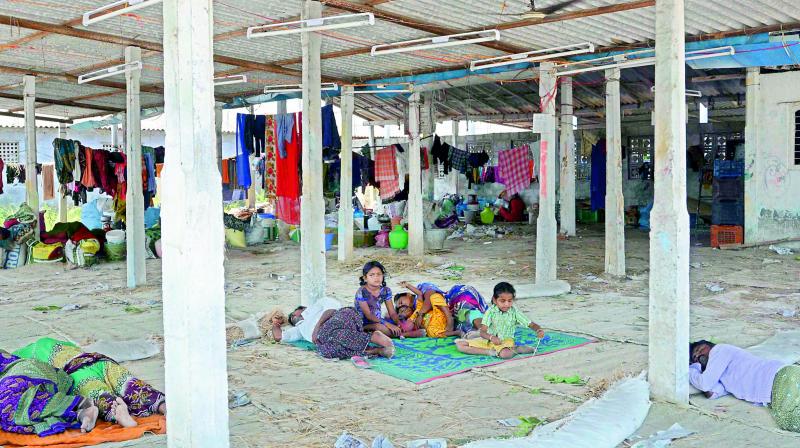Vijayawada: Low yield leads to rise in price of mangoes
Untimely rains during flowering stage hit production.

Vijayawada: Sky high prices leave mango lovers with a sour taste in the mouth this summer. The famous mango market in the state, located at Nunna on the outskirts of Vijayawada city, is witnessing poor trading activity due to low yield of the fruit.
The Banginapalli and Chinna Rasalu varieties, grown in Nuzvid and other areas in Krishna district, are famous across the world for their unique taste.
Mangoes from Nuzvid, Agiripalli, Reddygudem, Kanchikacharla, Mylavaram, Adavinekkalam, Gampalagudem, A Konduru and nearby areas are brought to the Nunna mango market for sale. These mangoes are exported to other states and even abroad.
Mango is cultivated in 1.60 lakh hectares in Krishna district but the untimely rains during December and January hit the crop in the flowering stage and this led to a dip in the yield. The dry conditions further decreased the yield leading to spiralling of the price to Rs 600 per dozen and beyond, based on the quality and variety.
A private employee, J. Sankar, said that Banginapalli and Chinna Rasalu usually cost Rs 150 to Rs 300 a dozen. This year, the price has risen to Rs 600 to Rs 800 a dozen, he said. There are 80 shops in the Nunna wholesale mango market but half of them are witnessing no activity due to poor arrival of mangoes.
Sk. Karimulla, a mango trader, said that usually mangoes start coming to market by the end of March and the sale would continue till June.
“Untimely rains damaged the mango crop. This has led to a rise in the price,” he explained.
Another trader, P. Nageswara Rao, said usually, mangoes are exported to Maharashtra, Haryana, Assam, New Delhi, Gujarat, Madhya Pradesh and Chhattisgarh but due to elections in those states, buyers have not come to the market this season.
He said they are hoping more mangoes would be brought to the market in the first week of May and exports would pick pace after the elections.
Nunna Mango Market Association secretary S. Venkateswara Rao said that only 100 to 150 tonnes of mangoes per day were reaching the market against the 300 tonnes that came last year.

